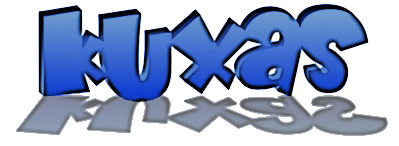Could a Machine Fix Errors in its own Rationality?
Whilst trying to escape the room mentioned before for instance, where four rectangles in the walls are identified, and again its rationality tells it to go though a door to escape. This time, it generates a random rule which tells it which rectangle to favour, such as “the rectangle nearest the floor”, or “the brightest rectangle”.
Some random rules will help a successful decision, and thus should be used to influence future decision-making, while others will hinder Plato’s success, so should negatively influence future decisions, and still others will have no effect. In order to determine which of the rules are useful however, Plato would need to be able to match a given situation with previous situations where the random element was not considered. It follows therefore that this method of learning, of improving the rationality, would be a relatively slow and error-prone process. It is also likely that some information about the world will be ‘invisible’ to Plato without certain knowledge which cannot itself be learned by random guessing.
3. No System Can Accurately Determine the Effects of its Actions in the World
When confronted with a given situation, a rational machine is able to determine a course of action which is most likely to give a successful result according to the known information about the world and the forces to which the situation is subject.
A perfect rationality would have perfect knowledge of the world and the rules that govern it under any given situation. Perfect knowledge of the world would require either knowledge of the position and energy of every elementary particle in the universe, or precise knowledge of the starting state of the Universe, and the power to simulate its transitions up to the present day.
Neither approach is possible. Let us assume the physical universe is all. Plato exists in this physical world, and has been constructed from physical parts alone. It stores, retrieves and processes information by some manipulation of controlled portions of the physical world, for instance silicon chips within it. All its processing and all its understanding exists in the physical world, there is nothing beyond that. For it to be perfectly rational, it must encapsulate information about every single particle of the world, and yet it must be stored somehow within this physical world itself. Perhaps some compression can be applied, perhaps it is not necessary to know about every particle, as the behaviour and state of some could perhaps be determined by their neighbours, and thus allow the whole to be duplicated within itself.
Nevertheless, to be complete, the model must contain information about the particles which are used to store and process the model, yet by storing this information, the positions or energies of the storage units would be altered.
This observer paradox, which appears to banish Laplace’s demon from the real world, means that any rationality must be flawed, and therefore it is not possible for a rational system to accurately appraise its own behaviour.
Imagine then that there exists another world, in addition to the physical universe, where the simulation could be executed. A model in this other world it is argued would overcome the problems mentioned above, and be able to simulate the physical universe perfectly. For this to be possible, the other world must be affected by the physical world in some way, in order for the model to be created and to obtain all necessary data. Yet this other world must not affect the physical world itself, for if it did, the model would have to also simulate the other world completely, and the problems outlined before would resurface.

